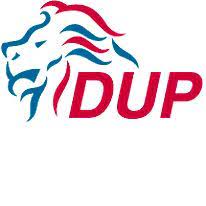PRESS RELEASE : “Mini-budget” is an absolute disaster [September 2022]
The press release issued by Mebyon Kernow on 28 September 2022.
The International Inequalities Institute (at the London School of Economics and Political Science) published a report in December 2020 about the impact of tax cuts for the rich. Looking at data over the last five decades, they concluded that “major reforms reducing taxes on the rich lead to higher income inequality” – hardly surprising – and that “such reforms do not have any significant effect on economic growth and unemployment.”
But last week’s “mini budget” for “growth” shows that the new Prime Minister, Liz Truss, and Chancellor of the Exchequer, Kwasi Kwarteng, continue to ignore such evidence, and it is shameful that they have chosen to favour the wealthy during a cost of living crisis.
It is frankly ridiculous that the UK Government has decided to increase government borrowing to make tax cuts which will disproportionately benefit the rich. At this time, millions and millions of people are struggling to make ends meet, while an increasing number of households are relying upon foodbanks and charities for basic support. What message is the Government sending to these people when its priorities include abolishing the top 45p rate of income tax for high earners and removing the cap on bankers’ bonuses?
The Institute of Fiscal Studies has confirmed that the richest 10% of households will get the most from the changes in tax policy. They will, on average gain £700 a year, whereas previous proposals from Rishi Sunak would have cost them £3,500. The Government itself estimates that 629,000 people (earning more than £150,000) will gain £10,000 a year, while the Resolution Foundation says that individuals earning £1million will get an annual tax cut of £55,000.
The “mini-budget” has been widely condemned and rightly so. The leader of the SNP, Nicola Sturgeon, has suggested that “the super wealthy will be laughing all the way to the actual bank,” even though they might be appalled by the “moral bankruptcy” of the ruling party. Plaid Cymru has said the changes are “not only morally questionable but economic madness.” Even the right-wing commentator Julia Hartley-Brewer has challenged the Tories to explain why they are cutting taxes for the rich, when they are “the only people who don’t need the help.” I would like to associate myself with such comments.
And it is telling that even some Conservative MPs are less than happy. One has been reported as saying that there is a “70-80% chance” that the “mini-budget” will be a disaster, while another has declared “this whole thing boils down to infectious childlike optimism in Downing Street … it would almost be endearing if it wasn’t so completely and utterly [swearword] mad.”



